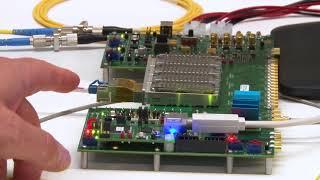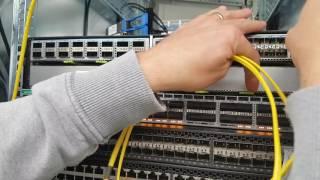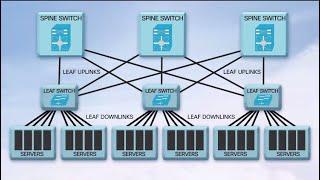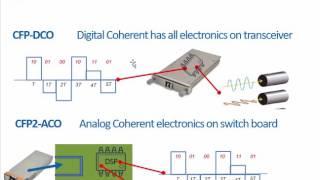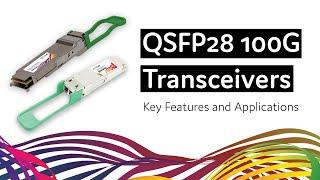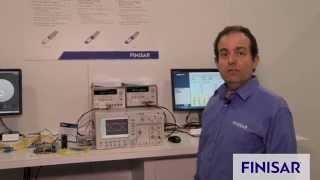Get the FULL video transcript here: https://www.rspsupply.com/education/a-21-basics-of-switches-routers-and-hubs/
Want to see similar products to those featured in this video: https://www.rspsupply.com/c-3861-ubiquiti-switches-routers.aspx
Check out our full line of Industrial Hardware on our website: https://www.rspsupply.com/
We want to discuss the differences between Hubs, Switches and Routers and the role the play in networking. Also, we want to explain in what scenarios we might use one device over the other and why.
Ethernet hubs, switches, and routers are all devices that let you connect one or more computers to other computers, networked devices, or even other networks. Each has two or more connectors called ports into which you plug in the network cables to make the connection.
Once the connection is made, all of these devices will start to communicate with one another. The way in which each device communicates is very different and will determine which type of device you want to use and why.
First, let’s discuss the Ethernet Hub. The hub is the least intelligent of the three devices. It simply takes any message that is received and transmits that message to every other device in the network. If CPU1 sends a message that is intended for CPU5, the hub will send the message to all other CPUs and network connected devices regardless of which port CPU5 is on. Also, when CPU5 responds to the message, all other network connected devices will once again see that message. So in essence, everyone sees everything, regardless of the messages intended target. The individual device will actually decide if the message that is being send is intended for them. Let me demonstrate…
So, hubs are a great solution for simple, less complex networks. For example, a home or small office where they are not very many connected devices within that network.
A few disadvantages to using a hub are one: that the network traffic is not managed in anyway, and if a lot of data is being sent at once the network can get bogged down with unnecessary traffic. Two: it can operate slower because the data is being sent to every device on the network because it has no way on knowing who the message is intended for. Lastly: It offers very little if any security for devices located on the network.
Now that we have discussed Hub’s, let’s move onto to Switches and why they might be a better option in certain scenarios.
Switches: https://www.rspsupply.com/c-333-ethernet-switches.aspx
Much like a hub, a Switch is intended to transmit data from one device to another within the same network. Unlike the hub, the switch can learn where that data is coming from and can also learn where that data needs to be sent. It using something called a switch table. That switch table stores the which port each device is connected to, it also stores each devices MAC address (or local address within the network). By storing this data, the Switch can operate much more efficiently than Hub can. This also causes much less traffic on our local network. For example: if CPU1 wants to send a message intended for CPU5, the switch will collect that data and has the ability to only send that message to CPU5. Also, when CPU5 responds, that message will be transmitted back to CPU1 by the Switch allowing traffic to flow better between all other network connected devices.
With that increased efficiency and speed that Switch is a great choice for almost all network solutions, both for residential and enterprise level networking. The only disadvantage this has in comparison to a Hub, is cost. Although, the cost of switches has become very reasonable in recent years.
Routers: https://www.rspsupply.com/c-3109-firewall-routers.aspx
Lastly, let’s look at Routers and what sets them apart from the other two devices we have already discussed. Must like the network Switch, a Router can transfer data between network devices learning the locations of each device on the network. It also performs some other very important tasks. It can talk to other networks and gives us the ability to communicate with the internet. A router is the device that is assigned an IP address (like physical address for our computers) from our local ISP. This IP address is then used for other networks to know where we are and where they will send information intended for our network. The router can also tell when information is intended for only one computer on the network and route that data correctly.
Want to see similar products to those featured in this video: https://www.rspsupply.com/c-3861-ubiquiti-switches-routers.aspx
Check out our full line of Industrial Hardware on our website: https://www.rspsupply.com/
We want to discuss the differences between Hubs, Switches and Routers and the role the play in networking. Also, we want to explain in what scenarios we might use one device over the other and why.
Ethernet hubs, switches, and routers are all devices that let you connect one or more computers to other computers, networked devices, or even other networks. Each has two or more connectors called ports into which you plug in the network cables to make the connection.
Once the connection is made, all of these devices will start to communicate with one another. The way in which each device communicates is very different and will determine which type of device you want to use and why.
First, let’s discuss the Ethernet Hub. The hub is the least intelligent of the three devices. It simply takes any message that is received and transmits that message to every other device in the network. If CPU1 sends a message that is intended for CPU5, the hub will send the message to all other CPUs and network connected devices regardless of which port CPU5 is on. Also, when CPU5 responds to the message, all other network connected devices will once again see that message. So in essence, everyone sees everything, regardless of the messages intended target. The individual device will actually decide if the message that is being send is intended for them. Let me demonstrate…
So, hubs are a great solution for simple, less complex networks. For example, a home or small office where they are not very many connected devices within that network.
A few disadvantages to using a hub are one: that the network traffic is not managed in anyway, and if a lot of data is being sent at once the network can get bogged down with unnecessary traffic. Two: it can operate slower because the data is being sent to every device on the network because it has no way on knowing who the message is intended for. Lastly: It offers very little if any security for devices located on the network.
Now that we have discussed Hub’s, let’s move onto to Switches and why they might be a better option in certain scenarios.
Switches: https://www.rspsupply.com/c-333-ethernet-switches.aspx
Much like a hub, a Switch is intended to transmit data from one device to another within the same network. Unlike the hub, the switch can learn where that data is coming from and can also learn where that data needs to be sent. It using something called a switch table. That switch table stores the which port each device is connected to, it also stores each devices MAC address (or local address within the network). By storing this data, the Switch can operate much more efficiently than Hub can. This also causes much less traffic on our local network. For example: if CPU1 wants to send a message intended for CPU5, the switch will collect that data and has the ability to only send that message to CPU5. Also, when CPU5 responds, that message will be transmitted back to CPU1 by the Switch allowing traffic to flow better between all other network connected devices.
With that increased efficiency and speed that Switch is a great choice for almost all network solutions, both for residential and enterprise level networking. The only disadvantage this has in comparison to a Hub, is cost. Although, the cost of switches has become very reasonable in recent years.
Routers: https://www.rspsupply.com/c-3109-firewall-routers.aspx
Lastly, let’s look at Routers and what sets them apart from the other two devices we have already discussed. Must like the network Switch, a Router can transfer data between network devices learning the locations of each device on the network. It also performs some other very important tasks. It can talk to other networks and gives us the ability to communicate with the internet. A router is the device that is assigned an IP address (like physical address for our computers) from our local ISP. This IP address is then used for other networks to know where we are and where they will send information intended for our network. The router can also tell when information is intended for only one computer on the network and route that data correctly.
- Category
- Routers and Switches
Be the first to comment







